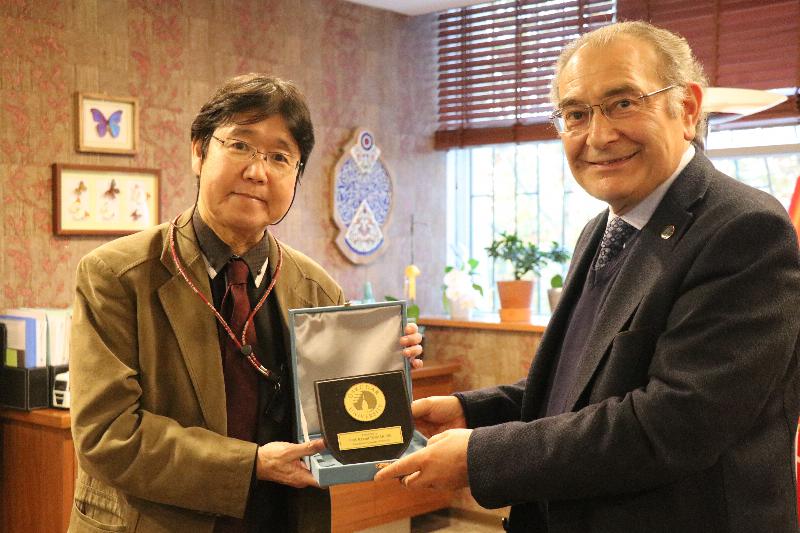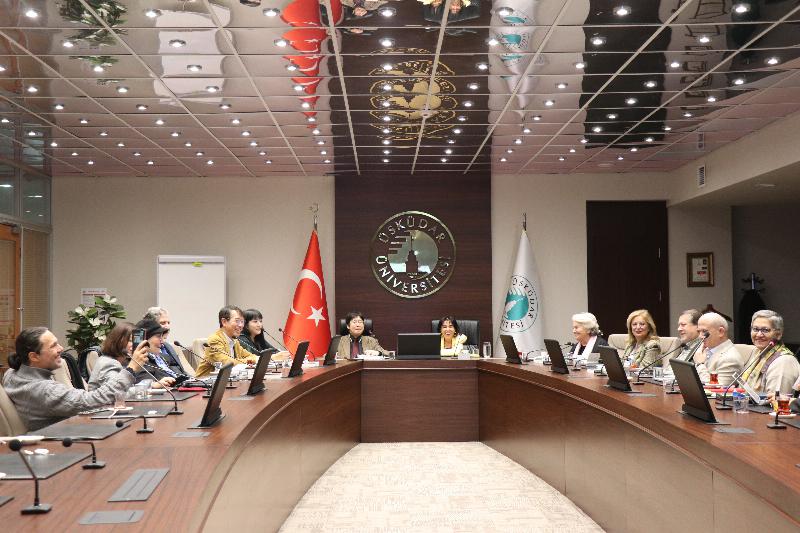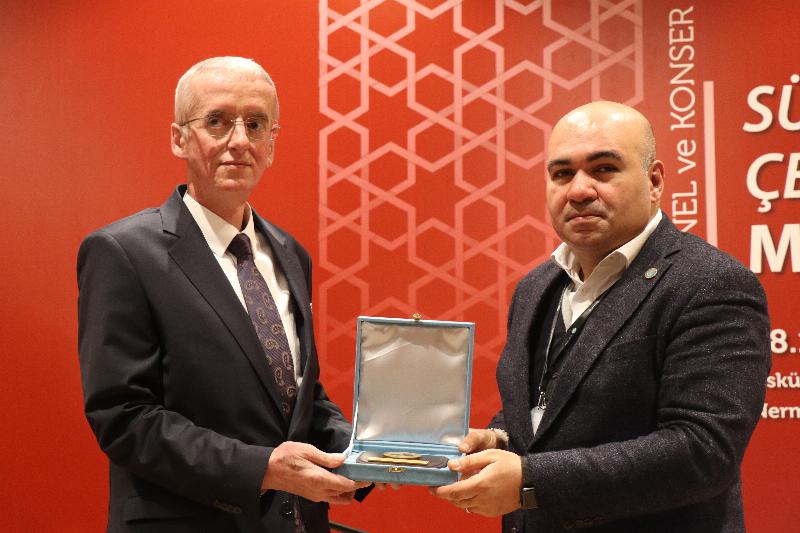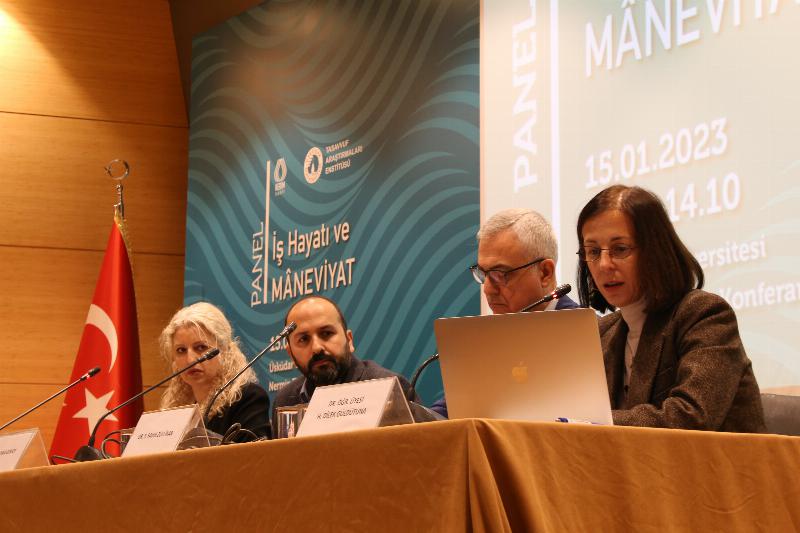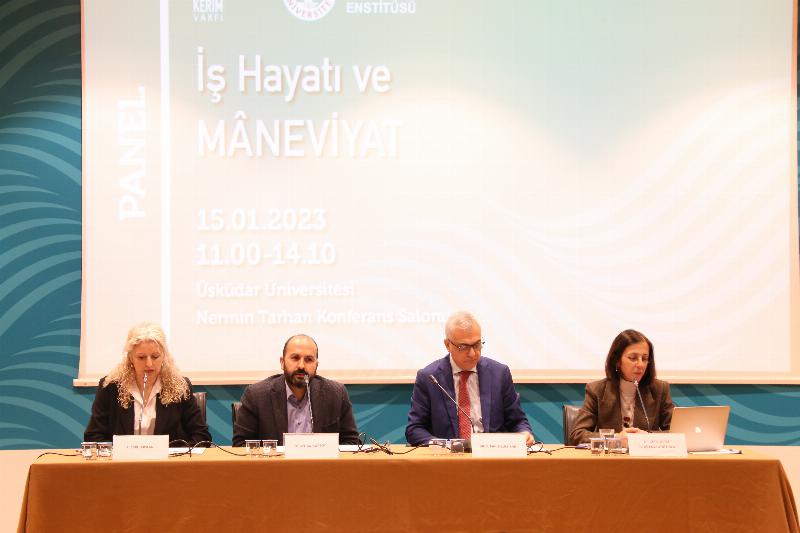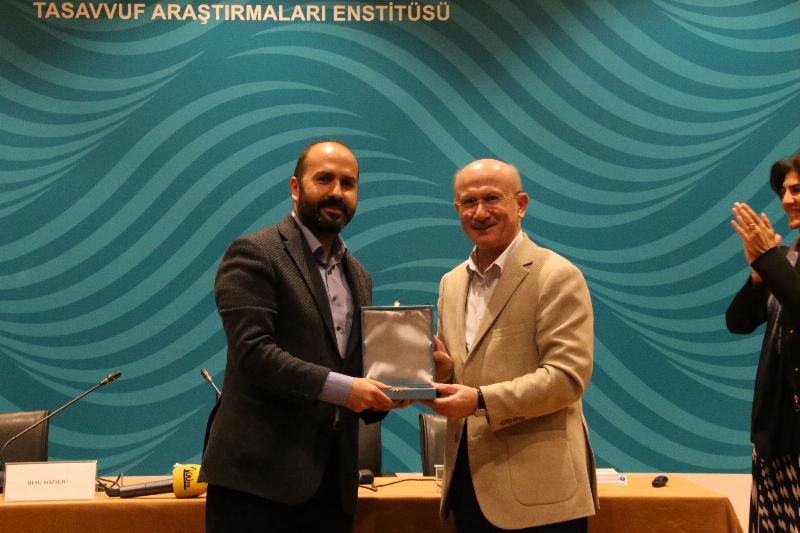Sufi Studies Group
Research Focus
The field of Sufism has a wide range of interests from literature to philosophy, from history to sociology, from music to painting, from political philosophy to popular culture and from science to art in addition to the basic Islamic sciences. When it is examined more closely, it is seen that every study on culture in this geography has to apply to the field of Sufism. Today, studies on Sufism offer new perspectives to those who are interested in sociology and human psychology.
The Research Group for Sufi Studies aims to bring together all disciplinary perspectives to approach the subject from a broad perspective. With this approach, it focuses on interdisciplinary studies in which the fields of humanities and social sciences, especially the subjects of Sufi thought, history and literature are examined by associating them with various disciplines of other fields as it is deemed appropriate.
The basis of interdisciplinary studies is based on increasing the possibilities of thinking without conventional restrictions and by going beyond the known patterns by bringing together different disciplines and researchers from these disciplines. We have not yet encounter sufficient knowledge in the literature about the new possibilities that will arise from the meeting of Sufism's own concepts and methods with other disciplines. The Institute works to contribute to the formation of the infrastructure of thought that concerns the society; produces added value, shares social responsibility and produces solutions in every field that affects sustainable development from the outputs of the texts consisting a source for the studies in question as well as on the subjects of mysticism, history and literature of the Islamic civilization.
The education provided by the Institute within the scope of Sufi Culture and Literature master's programs has been enriched with the Islamic Civilization, Thought, History and Literature doctorate program, which will offer more profound and broader scientific opportunities. The doctoral program assembles the relevant human profile under the same roof to support the research and projects of the research group.
It is aimed that this approach will contribute to civilization studies originating from Turkey and Islamic civilization readings based on Sufi thought. It is an important part of this effort and is the focus of attention that Turkish works find its place that they deserve in the literature of Islamic studies and works of the Ottoman commentary tradition are introduced through international publications.
The research group carries out scientific activities such as training programs, national/international symposiums, panels, conferences, interviews and seminars to ensure that the studies and the results obtained are delivered to the society as its main purpose. These events are announced to large audiences through the media and social media tools of the Institute and our University. The Institute staff is a natural member of the working group.
Business and Work Ethics Group
Study Focus
There are necessary internal development and improvement studies based on people, culture, system and process by the institutions to achieve their strategic goals, to be more effective in their fields of activity, to produce benefits for all their stakeholders and the ecosystem they are in, and to be able to give immediate respond to changes.
These studies can be evaluated under three separate titles;
1) Quality Management Systems
2) Production Management Development Methods
3) Organizational Management Tools
It may be possible to combine all the models mentioned in title 1 and 2 under title 3 with a broad perspective. Models designed to design the structure, operation and culture of institutions are within this scope.
No matter how well designed these "integrated management systems" are, problems are observed in their internalization/adoption by businesses and employees in Türkiye. Since most models do not offer a common understanding compatible with the employee's own cultural references and perspectives, it is difficult for employees and managers to adapt. For this reason, they cannot transform into organizational culture in daily life and it is difficult for people to establish a meaningful connection although these systems are used uniformly as a management tool in most businesses. Therefore, the competencies, which can be simply described as the behavioral sets that every institution seeks in its employees, can be planned in accordance with the basic concepts and behavior models of the culture in which the employees are raised. The “Business and Work Ethics” group has come together to work on connecting these systems with spirituality and cultural codes in terms of philosophy, content, language and application formats 10 workshops were held to clarify the study focuses. Between January and July 2021, and the study focuses were structured around 15 seminars, some of which were based on postgraduate studies and/or professional consultancy experience carried out at the Institute.
Behaviors and Usage Areas in Business Life
Work Ethics – Islamic Work Ethics (IWE) and Protestant Work Ethics (PWE)
Current Status of Ethical Practices in Companies
Behaviors in Business Life, Definition of Competence and its Relationship with Working
Ethics and Ethical Concepts (General Ethics, Work Ethics, Professional Ethics and Business Ethics, in the Context of Environmental Ethics Definitions on behalf of institutions)
Ethics and Religion Relationship
The Impact of Culture on Work Ethics
The Effect of the Environment on Behaviors in Working Life (System - Human Adaptation)
Basic Concepts in Ahi Community and Ways of Adaptation to Today
The System of Values at the Origin of Far Eastern Production Systems
Lean Management Systems in Banking and Finance Sector
Islamic Index Ranking of Country Analysis
The Case of IKEA as a Production and Management Model
Organization of the Future and Required Human Competencies
Future’s Leadership Understanding: Servant Leadership
Determined Research Focuses:
Introduction of Management Tools and Systems
Future Change and Transformation of Management Tools and Systems
Existing Models and Background Values in the World and Türkiye
Promotion of Best Practices in the World
Meta-Explanation of Problems and Incompatibility in Türkiye
Models/Approaches that can be Parallelized from Cultural History
Criteria for Studies to be Conducted in Türkiye regarding Scope
Business and Work Ethics Group:
Coordinator: Prof. Elif ERHAN
Group Members from the Academic Staff within the Institute:
Prof. Emine YENİTERZİ
Prof. Resat ONGOREN
Asst. Prof. Cangüzel GÜNER ZULFIKAR
Asst. Prof. Hatice Dilek GÜLDÜTUNA
Asst. Prof. Omneya AYAD
Asst. Prof. Arzu Eylül YALÇINKAYA
Other Group Members:
Prof. Server DEMİRCİ
Prof. Hüsniye ÖRS
Dr. Fahir ZÜLFİKAR
E. Ebru ARSLAN
Ülkü BOZKURT
Birhan GENÇER
Kerim GÜÇ
Gamze GÜÇ
Oğuzhan GÜRSOY
Petek KUTUCUOĞLU
Yeliz MERDAN
Şule UYSAL ÖZATAY
Pınar ERSOY ÖZDOĞRU

